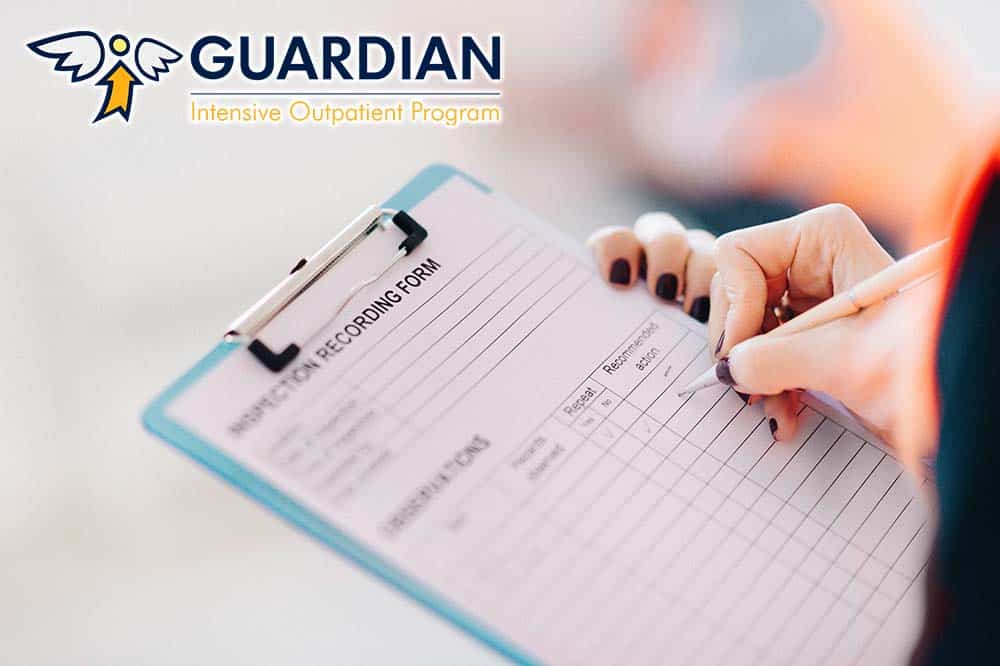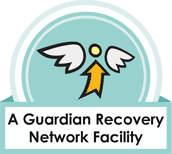Treatment is the obvious answer for those struggling with drug or alcohol abuse. But not everyone can afford to put their lives on hold to attend residential treatment for 3 months, and others who have completed a residential program may benefit from engaging in ongoing treatment.
While intensive outpatient treatment isn’t for everyone, it offers a few key benefits that may work to your advantage depending on your needs and circumstances:
1. It’s flexible.
Intensive outpatient programs (IOPs) last 8-12 weeks and are inherently more flexible than inpatient programs, allowing you to maintain certain responsibilities as you progress through recovery. People who are in school, have full-time jobs or are parents of young children find outpatient care to be the most beneficial form of addiction treatment.
Many people just can’t press the pause button to attend residential treatment for an extended period, but that shouldn’t be a roadblock to recovery. At Guardian IOP, we schedule meetings, sessions and workshops throughout the day and evening, giving you time to work, continue your education or be with your family.
2. It’s discreet.
Although times are changing, there is still a stigma surrounding addiction and recovery. Some people deal with shame and embarrassment just in admitting their addiction to themselves, let alone other people. If you’re concerned about the social implications of treatment, an IOP can connect you with the services you need while helping to maintain your privacy and protect your reputation.
3. It keeps you in contact with friends and family.
Addiction is isolating, and recovery can be too. Community and camaraderie are both huge parts of the inpatient, residential treatment model. However, for someone who doesn’t require inpatient services and has a strong, supportive network of friends and family, an IOP may be a good solution.
4. It’s “intensive” for a reason.
An IOP is by no means a more relaxed, less involved form of addiction treatment. In fact, it’s quite the opposite. Guardian IOP, for example, is similar to an inpatient program because it’s intensive and highly structured–clients just return to their homes each evening instead of residing onsite. Additionally, Guardian IOP also offers gender-specific and age-specific programming that is designed to meet each client’s needs.
Clients typically remain in an IOP for 8-12 weeks and may spend 10-30 hours each week engaging in various outpatient programming. Most clients attend sessions 3-5 days a week in 3-4 hour blocks.
5. It’s affordable.
Cost is a factor that can prevent people from receiving the treatment they need. Affordability should never be a barrier to treatment, but if someone can’t afford to attend an inpatient, residential program, an IOP is a much more sustainable, realistic alternative.
6. It introduces you to a recovery community.
A secure network of supportive friends and family is critical for a long-lasting recovery. An intensive outpatient program enables you to meet other people who understand what you’re going through, and you can form relationships with peers and treatment staff that you’ll have for life.
Although intensive outpatient treatment isn’t usually the first step for someone who wants to recover from addiction, it’s a viable option under certain circumstances. For more information about our outpatient programs in Delray Beach, contact us at (888) 693-1894.

Reviewed for accuracy by:
Anna Marie Barrett LCSW, CYT
Anna earned her Masters of Social Work at Barry University in Miami, FL in 2017 and completed her internship in co-occurring disorders. Anna has a Bachelors of Art in Religious Studies from Naropa University and is a certified yoga and meditation instructor. Anna has received specialized training in somatic counseling with an emphasis on body-centered psychotherapy.




















